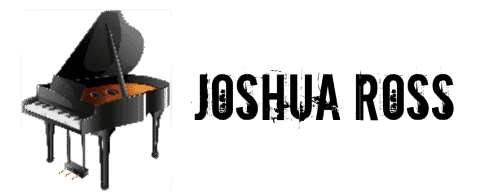As an Amazon Associate I earn from qualifying purchases.
Deciding which piano to buy can be confusing. There are so many options out there, especially with digital keyboards and upright pianos. The most expensive option is the grand piano. Comparing a grand piano to the other cheaper and the smaller option is difficult for new musicians. Many people wonder if it’s really worth the cost to purchase a grand piano.
So, is a grand piano worth it? The short answer is yes, a grand piano is worth it. Grand pianos offer a much more refined playing experience than upright pianos or digital keyboards. They are built with better materials, which give them better sound quality, action, and durability.
In order to get a better idea of why grand pianos are worth it, I’ve broken down all the essential factors for you. This will give you a better sense of what to do when it comes to purchasing a piano.
Want to Learn Piano?Click Here

Grand Pianos Have Better Action
One of the best reasons to buys a grand piano is for the playing mechanisms themselves. Grand pianos have noticeably better action than vertical or digital pianos. This is because grand pianos utilize the hammers in a way that allows for rapid repetition.
If you were to play a key, you can replay it without having to release it completely. This allows pianists to pull off certain passages of music with ease and in general, makes the instrument easier to play. The sound can also be quickly manipulated in that same amount of time.
Below are a few issues you’ll find with vertical pianos and cheap digital pianos:
- Inconsistent action
- The inability for fast repetition
- Sluggish action
- Unresponsive keys
Grand pianos are more refined and don’t tend to have those issues unless they’ve been regulated poorly. They are easier to play. This makes them absolutely worth it for a beginner pianist too, not just an advanced player. Pianists can play more accurately and with more finesse on a grand piano. Grand pianos allow for more artistic control and overall better playing experience.
Grand Pianos Sound Better
Pianos are wonderful musical instruments and are known for their unique sound. When comparing an acoustic piano to a digital piano, there is no substitute for the real thing. Of the acoustic piano varieties, grand pianos are the cream of the crop.
When the hammer strikes the strings, it releases immediately so the piano can produce the tone. It also occurs if the pianist were to press and hold the key; the hammer still releases, but the tone is sustained.
Grand pianos produce a much deeper and richer tone than upright pianos. A lot of this has to do with the parts the grand piano is built with as well as their shape and size. How much better a grand piano sounds compared to an upright piano depends on those factors.
For example, a 5′ grand piano would be considered a baby grand. It has shorter strings, a smaller casing, and a smaller soundboard. Although the action may perform better, the sound will be comparable to a high-quality upright piano. Things change once the piano starts to get larger.
Pianos in the 6′ to 9′ range are considered conservatory grade. These pianos are more refined and produce a bigger tone, especially in the bass region. The amount of working parts increases as does the size of the strings and quality of wood used to build the instrument. The bigger the instrument, the louder the produced sound will be.
While upright pianos projected their sound upward, grand pianos benefit from their landscape design. The sound moves upward but then reflects off of the lid which projects it outward to direct the audience. This allows grand pianos to cover a wide area with sound while upright pianos are limited to their immediate area.
Pedals
Most vertical pianos have just two pedals. Digital pianos usually have an input for just one pedal (although you can buy a complete pedal set like this one). Grand pianos have all three. They include the una corda, sostenuto, and damper pedal.
Having all three pedals is really important for producing certain types of sounds at the piano. The una corda is the most intriguing of the pedals because it changes the overall tone drastically. When a pianist presses down the una corda pedal, the action is shifted over so that fewer strings are struck by the hammers.
This produces a soft tone, almost as if you had a towel covering a speaker. This pedal can produce some amazing tones and in combination with the damper pedal which sustains all notes, it can transform an entire piece of music.
The sostenuto pedal also called the middle pedal is the least used pedal of the three. It works much like the damper pedal, but only sustains the notes played before depressing the pedal. This allows pianists to sustain the notes they want to and to keep the rest of the notes from blending into the sound.
Not many pieces use the sostenuto pedal, but below are a few I’ve found:
- Debussy Pour le piano
- Debussy Claire de Lune
- Prokofiev Piano Sonata No. 3
- Rachmaninoff Piano Concerto No. 2
- Rachmaninoff Prelude In C Sharp Minor
They Are More Visually Appealing Pianos
Pianos are large instruments and in a way can become a huge visual part of your home. Pianos are essential furniture for some, and so a grand piano is going to almost always be more visually appealing.
Grand pianos have an elegant design. The casing is dark, smooth, and even shiny. Or perhaps you can get one that thas that rustic look. Open the lid and there is an impressive display of perfectly tuned strings, knobs, and engraved soundboards. The reflection off the underside of the lid makes it even more appealing.
Upright pianos just don’t have that same kind of appeal. They are often bare in their surfaces, lacking the kind of shine a grand piano has. They are mostly placed directly on a wall as they will look odd sitting in the middle of a room. If you want to get a look at the strings, you’ll need to open up the lid and peer down inside to see what’s there.
For some homes, an upright piano works better than a grand piano. It really depends on how much space you have, the design of your home, and whether it matters to you in the long run.
A Few Caveats
Although grand pianos are worth it for most people, there are some situations where it may not be the best fit for you. This can be broken down into a few areas that include pricing, cost of maintenance, and how much room grand pianos take up in the home.
Grand Pianos Are Expensive
A grand piano is the most refined version you will find of the instrument. This version of the piano is built with the best woods, the highest quality plastic, and produced by the world’s finest craftsmen. All of that comes at a substantial cost.
An average to mid-level grand piano costs between $5000 – $20,000. These include beginner piano models like the Yamaha GB1k or a Kawaii RX1. Both of those pianos have a price point near $12,000. For the most part, these will be baby grand pianos although larger 5′ – 6′ models can be found in brands such as Brodmann, Knabe, Schimmel, or even Yamaha!
Then there are high-end to artist level concert grand pianos. These pianos often range between $40,000 – $189,000 or more. This includes brands such as Steinway, Bosendorfer, Yamaha, Fazioli, and many others. The bigger the piano, the more it will cost. You can learn more about the cost of a piano in this article.
When determining if a piano that expensive is worth it, the playing level and goal need to be considered.
If you plan to just play the piano as a hobby or recreationally, it would not make sense to invest hundreds of thousands of dollars into a 9′ concert grand piano. The more sensible option would be to purchase a nice quality grand piano that can provide an ample level of refinement and make the playing experience enjoyable.
For a full breakdown on shopping for pianos, read this piano buyers guide.
Acoustic Pianos Require Routine Maintenance
Whether your piano is an upright or grand, an acoustic piano will need routine maintenance. The tuning process for both piano types is similar, but grand piano tunings typically cost more. It costs around $150 to tune a piano, and additional costs can occur for voicing and other minor repairs.
If an acoustic piano suffers significant damage, then a rebuild of some sort will need to take place. Depending on the brand of the piano, a rebuild can cost more or less because of the parts needed to make the instrument function like new. Upright pianos are much cheaper than grand pianos and are often replaced instead of rebuilt.
Below is a list of common repairs a piano might need:
- Tuning
- String replacement
- Voicing
- Soundboard cracking repair
- Key replacement
- Deep cleaning
- Buffing and scratch repair
- Complete rebuild
Those who do not want to deal with routine repair costs often go the route of purchasing digital pianos. Digital pianos are a great option as the most you’ll ever replace are the cables and pedals. Although digital pianos have little to no maintenance costs, they can only mimic the authentic action and sound of a piano so much.
Size Is A Concern With Grand Pianos
Outside of price, the next biggest deciding factor when it comes to owning a grand piano is the size. Even 5′ grand pianos can take up a considerable amount of room in the home. You have to consider not just the piano itself, but how much extra space is needed to sit down at the piano too.
Because of size, upright pianos are the more popular option. They sit right against a wall and they provide the acoustic realness that a digital piano cannot.
Deciding Which Piano Is Right For You
With all the information above, it’s time to make a decision about which piano is the right fit for you. Below are all the things you should consider:
- Size of the piano
- Your budget
- Playing level (beginner, intermediate, advanced)
- The cosmetics
- Future plans
Of those factors, the most important is the size of the piano, your budget, playing level, and future plans for your piano. Although a grand piano is worth it, there’s no need to purchase one if you cant fit it into your home. Likewise, if you don’t have the budget for one, then you should consider alternatives like an upright piano or a keyboard.
More advanced pianists probably already have an upright or a digital piano, so a grand piano would be worth the upgrade. A grand piano will further your playing abilities and make the music more enjoyable. Also, think about what future plans you have for the piano. Grand pianos are instruments built so well that they can be handed down for generations to other family members.
Hello & thanks for stopping by! I’m a professional concert pianist and piano instructor. In the United States, I’ve given successful performances in several places including New York, Florida, Connecticut, & New Jersey, I have also performed internationally in Italy and made my Carnegie Hall debut in 2014. I enjoy blogging about the piano, the art of performance, general music, current events and the latest in music production.
